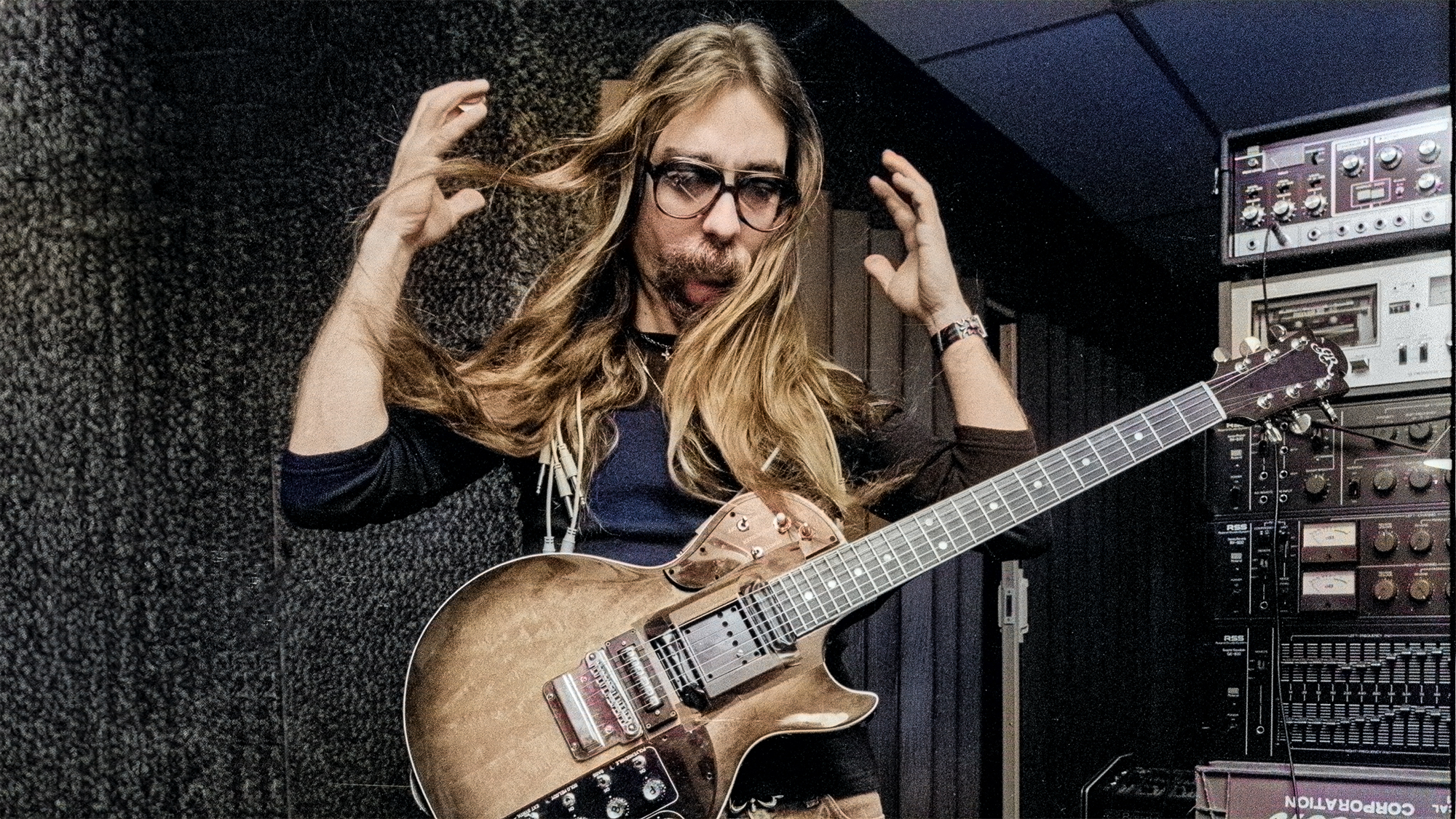"Why does John Frusciante want a piece of crap like this?" Eddie Van Halen didn't like the guitarist's choice of wah pedal. His advice to the Red Hot Chili Peppers' axeman was priceless
Guitar tech Dave Lee says the plastic wah pedal was Frusciante's favorite — and the easiest to break

John Frusciante’s former tech Dave Lee reveals that Eddie Van Halen once helped him source a hard-to-find wah pedal for the Red Hot Chili Peppers’ guitarist. But as Lee tells Boss’s Rod Brakes, Ed wasn’t very impressed with the electric guitar icon's choice of gear and offered him some hilarious advice.
Lee, who currently lends a hand to Maroon 5's Adam Levine, became a member of the RHCP’s crew in 1995 to assist guitarist Dave Navarro, who had joined the band two years earlier. Navarro took over the guitar spot from Frusciante, who’d left in 1992 in the midst of a drug addiction.
By 1998, Navarro was battling his own demons. As Lee explains, on the very day of his departure from the RHCP, Frusciante indicated his interest in returning.
“When John returned, we did a handful of shows to see how it would go, and it all went great,” Lee tells Brakes. “After that, they went into the studio and recorded Californication.”
During the album's sessions, Frusciante became enamored of an original Ibanez WH10 wah and added it on his pedalboard when the band toured behind the album. Unfortunately, the pedal has a plastic housing and is notorious for breaking under heavy use, and Lee had to constantly replace it.
“He wouldn’t use anything else,” Lee explains. “I thought I could just keep buying more, but they became increasingly difficult to find.”
Eventually, Frusciante was down to his last WH10. In desperation, Lee turned to Eddie Van Halen’s guitar tech, Matt Bruck.
All the latest guitar news, interviews, lessons, reviews, deals and more, direct to your inbox!
“Matt Bruck, was a genius at locating hard-to-find gear,” he says. “I was at John’s house when Matt called me and said,’I’ve found you a WH10. I’m at Eddie’s house. You can come on over and pick it up if you like.’”
Lee drove over, only to find Eddie himself waiting outside with the pedal.
“When I pull up outside, Ed is standing there with the WH10 wah in his hand, just kind of looking at it. He goes, ‘Why does John Frusciante want a piece of crap like this?’
“I laughed and said, ‘Yep. You’re right. It is made of plastic, and they break all the time. That’s why we need this one. We only have one left.’

“He looked at me very seriously and said, ‘Listen, man. You need to tell John this is the only one left. Because when I’m using a pedal, and I think it’s the only one I’ve got, I’m a lot more careful with it.’
“That was some good guitar tech advice from Eddie Van Halen. John thought that was hilarious.”
As Frusciante revealed to Guitar Player in 2022, shortly after the RHCP released Return of the Dream Canteen, he still enjoys living on the edge when it comes to playing guitar.
“It’s beautiful when you feel like somebody’s putting themselves out there and taking a risk and just barely holding on, and it could become terrible at any moment if they lose it,” Frusciante told writer Rich Bienstock. “I love the openness of that. It’s the vulnerability that I think is most appealing.”
Christopher Scapelliti is editor-in-chief of GuitarPlayer.com and the former editor of Guitar Player, the world’s longest-running guitar magazine, founded in 1967. In his extensive career, he has authored in-depth interviews with such guitarists as Pete Townshend, Slash, Billy Corgan, Jack White, Elvis Costello and Todd Rundgren, and audio professionals including Beatles engineers Geoff Emerick and Ken Scott. He is the co-author of Guitar Aficionado: The Collections: The Most Famous, Rare, and Valuable Guitars in the World, a founding editor of Guitar Aficionado magazine, and a former editor with Guitar World, Guitar for the Practicing Musician and Maximum Guitar. Apart from guitars, he maintains a collection of more than 30 vintage analog synthesizers.
